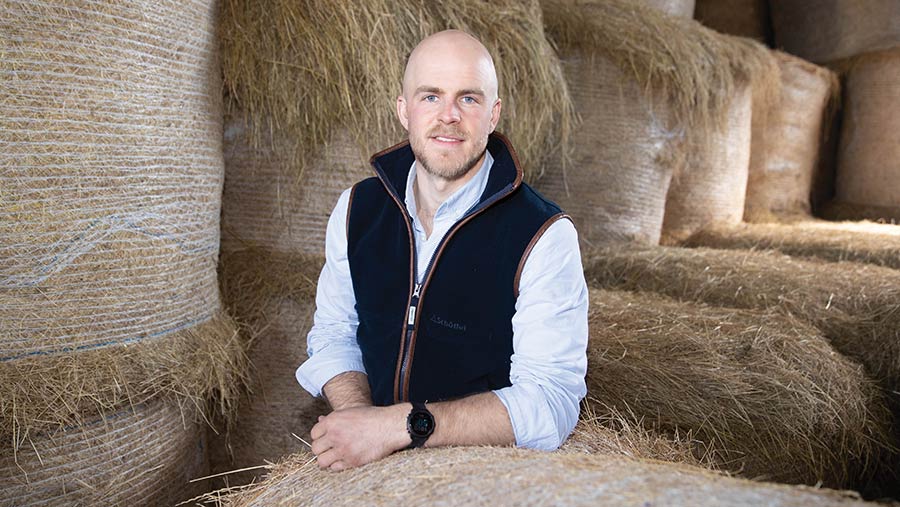James Herrick: English farmers should back Welsh counterparts
 James Herrick © Tim Scrivener
James Herrick © Tim Scrivener Regardless of whether you support them or not, farmer protests are becoming more common of late.
As an Englishman, however, I would like to pledge my support for the Welsh.
When I heard of the uproar from Welsh farmers at the Sustainable Farming Scheme (SFS) proposals, I had a brief read through them. What I found made me understand their anguish.
See also: James Herrick – exercise gives me mental clarity
Mixed in among some workable options and a few more difficult ones were two that really hit home.
To claim your subsidy payments, you must have a minimum of 10% of your farm planted with trees and another 10% managed for “natural habitat”.
Classed as “universal” actions, these options are non-negotiable and, in my eyes, problematic.
As a farmer with very productive land and practically no woodland, the idea of losing 20% of our land to these options (with no idea of the payment rates yet, might I add) makes me start to wonder how some of the smaller farms are going to survive.
The Welsh government claims that these options are based on UK Climate Change Committee advice to plant trees to curb the effect of climate change and increase habitat for the “declining” native species.
All of which will help lead to the end goal of 30% of the Welsh landscape managed for nature by 2030.
It seems that the Welsh government has shepherded farmers into a corner.
They are dangling the carrot of subsidy support to help themselves offset the unacceptable greenhouse gas emissions of other industries at the expense of food production, rural communities and Welsh farmers.
There will be farmers who have profitable small business and need every acre available to make that happen. They will undoubtably be lost due to these proposals.
They won’t be guaranteed 20% more for their products. They won’t be given 20% discount on all of their costs. They will just be expected to get on or get out.
As a firm believer in the “slippery slope”, I think farmers across the UK should stand shoulder-to-shoulder with our Welsh counterparts. It might be them now, but before you know it, you’ll be next.

